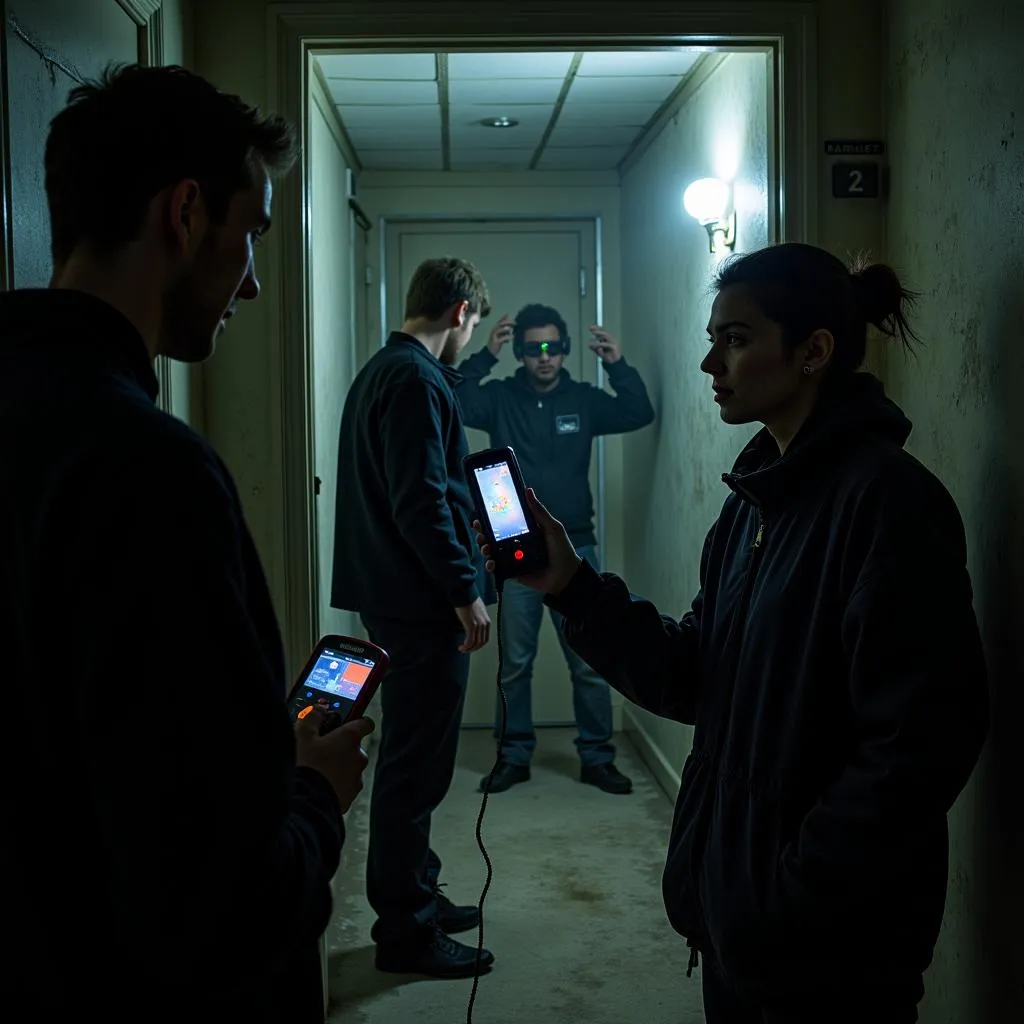The world of paranormal research is shrouded in mystery, with many claiming to have experienced the unexplainable. But how do we move from anecdotal accounts to verifiable evidence? This is where the contrasting approaches of theoretical and empirical research come into play. Both are crucial for investigating paranormal phenomena, offering distinct pathways to understanding the unknown.
Delving into the Unknown: Theoretical vs. Empirical Research
Theoretical research, in the context of paranormal investigation, often draws upon existing knowledge from fields like physics, psychology, and philosophy to formulate hypotheses about the nature of these phenomena. Imagine trying to explain ghostly apparitions using quantum entanglement or exploring the possibility of ESP through theories of consciousness.
Empirical research, on the other hand, focuses on gathering tangible data through observation and experimentation. This could involve using EMF readers during a haunting investigation or conducting controlled studies on individuals claiming psychic abilities.
 Theoretical Research in Paranormal Investigations
Theoretical Research in Paranormal Investigations
Bridging the Gap: Why Both Approaches Are Essential
While seemingly separate, theoretical and empirical research are interconnected and mutually beneficial. Theoretical frameworks provide a foundation for designing empirical studies, offering testable predictions. Conversely, empirical findings can either support or challenge existing theories, leading to their refinement or the development of entirely new theoretical models.
For instance, a researcher might hypothesize that hauntings are linked to electromagnetic fluctuations based on theoretical understanding of energy fields. This theory can then be tested empirically by collecting EMF readings at allegedly haunted locations. If significant fluctuations are consistently observed, it strengthens the initial hypothesis. However, if no such correlation is found, the theory might need revision.
Navigating the Paranormal Landscape: Strengths and Limitations
Each approach comes with its own set of strengths and limitations:
Theoretical Research:
- Strengths:
- Allows exploration of complex and unconventional ideas.
- Provides a framework for understanding and interpreting empirical data.
- Can connect seemingly disparate phenomena.
- Limitations:
- Prone to speculation and bias without empirical support.
- Can be difficult to test or falsify.
- May not always align with existing scientific paradigms.
Empirical Research:
- Strengths:
- Provides tangible evidence and measurable data.
- Allows for replication and verification of findings.
- Less susceptible to subjective interpretation.
- Limitations:
- Limited by current technological capabilities and methodologies.
- Can be challenging to design controlled experiments for paranormal phenomena.
- Findings might not always lead to definitive conclusions.
 Empirical Research in Paranormal Investigations
Empirical Research in Paranormal Investigations
The Future of Paranormal Research: A Unified Approach
The future of paranormal research lies in a synergistic approach, where theoretical and empirical investigations are interwoven. This involves:
- Developing testable hypotheses: Grounded in existing scientific knowledge but open to exploring unconventional explanations.
- Refining research methodologies: Continuously improving data collection and analysis techniques for greater accuracy and reliability.
- Collaboration across disciplines: Encouraging dialogue and collaboration between Paranormal Researchers, physicists, psychologists, and other experts.
“To truly understand the paranormal,” says Dr. Emily Carter, a leading researcher in parapsychology, “we need to embrace both the power of imagination and the rigor of scientific inquiry. It’s about finding that sweet spot where theoretical speculation fuels empirical investigation and vice versa.”
Conclusion
The pursuit of understanding paranormal phenomena demands a multifaceted approach. By combining the imaginative exploration of theoretical research with the grounded evidence of empirical investigation, we can move closer to unraveling the mysteries of the unknown. The journey may be challenging, but the potential rewards are immense, offering a glimpse into realms beyond our current understanding.
FAQs
1. Can theoretical research in the paranormal be considered scientific?
While theoretical research in the paranormal might delve into areas beyond current scientific understanding, it can still adhere to scientific principles by formulating testable hypotheses and engaging in critical analysis. The challenge lies in designing empirical studies to validate or refute these theories.
2. What are some examples of empirical research tools used in paranormal investigations?
Common tools include EMF meters, thermal cameras, EVP recorders, and motion sensors. These instruments aim to detect and measure energy fluctuations, temperature changes, unexplained sounds, and physical movements, which are often associated with paranormal activity.
 Future of Paranormal Research: A Unified Approach
Future of Paranormal Research: A Unified Approach
Need Help with Your Paranormal Research?
Contact us for support!
Phone: 0904826292
Email: research@gmail.com
Address: No. 31, Alley 142/7, P. Phú Viên, Bồ Đề, Long Biên, Hà Nội, Vietnam
Our team is available 24/7 to assist you.